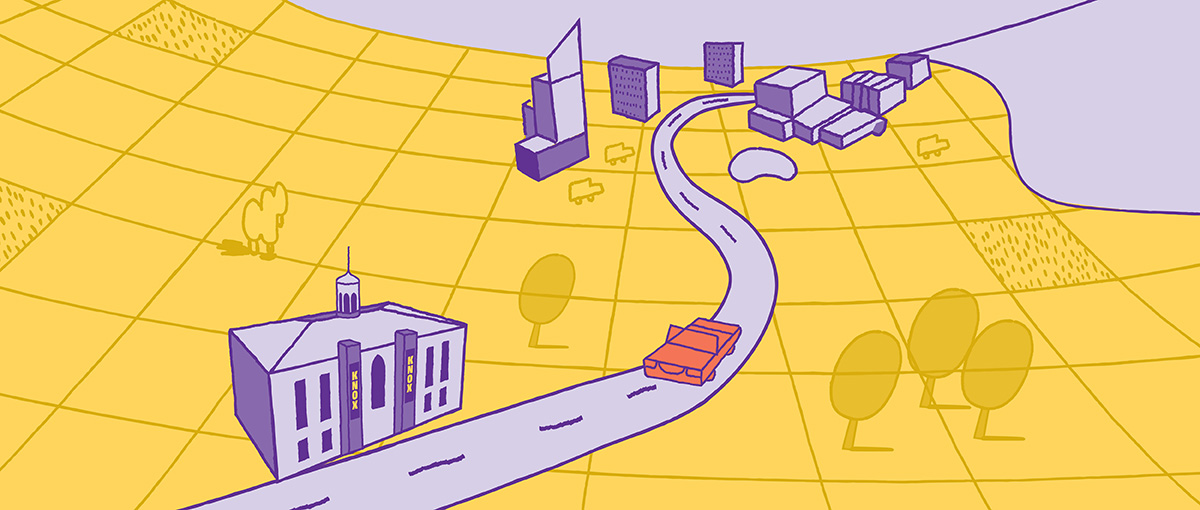

Isis Ferguson '01
Program Manager, Arts + Public Life Place Lab
Majors in Gender & Women's Studies and Africana Studies
Since graduating from Knox, Isis has spent most of her time working with LGBTQ youth, youth of color, and youth impacted by adolescent pregnancy.
What drew you to your current work?
Since graduating from Knox I've sought out work that continued in the tradition of building systems of care and support and explicitly addressing injustice and inequity. For a while this work involved youth in a number of different contexts. And in the last few years, at the Jane Addams Hull-House Museum and now at the Arts + Public Life Initiative at University of Chicago, I get to address those same systems of oppression I've always been interested in effecting at a different level. Previously I was working with single individuals or families, a public program, or a series of events and engagements. Currently I am thinking on the scale of cities and how to make them livable and culturally rich and equitable for all residents. There's a thread in this work that runs right back to my years at Knox, my first conscientious community.
When did you decide that feminism could become a career?
I hadn't thought of it in that way until the question was posed. I love that. I never explicitly decided to have a career in feminism. Instead, I've worked to bring feminist principles and methodologies to my various places of employment. I was lucky enough to spend two years as the program manager at the Jane Addams Hull-House Museum at University of Illinois at Chicago. This is the only intentionally (and historically) feminist space I've work in.
When I worked with pregnant and parenting teens I drew upon my graduate and undergraduate training in gender. When I worked with LGBTQ youth of color in Boston I also drew upon that training. When I partnered with undocumented youth organizations, or prison reformers critical of our country's incarceration system, food justice advocates, or domestic workers, my Knox training guided my work.
Knox is where I developed an intersectional politic. In classes with Audrey Petty '90, Magali Roy-Fequiere, Karen Kampwirth, Anjie Rosga, and Natania Rosenfeld I became acquainted with a notion of identity I knew to be true. Intersectionality suggests that race, gender, class, sexuality, ability and nationality can't be considered separately. As systems they don't act independently, but instead operate and are experienced simultaneously. It is with this understanding that I work, live, and love in Chicago. I guess I don't just work as a feminist. I live and love that way too.
You earned a master's degree in Gender & Cultural Studies from Simmons College. How did your liberal arts education prepare you for graduate school?
I had already been in small classrooms where students were expected to be prepared and participate, fully engaged in the learning. Knox was rigorous, heavy reading and writing loads, so grad school felt familiar. I was used to a very conversational classroom, courses that were student-led, projects that required relationships with the surrounding community. I didn't think much about Knox's motto, "freedom to flourish" while I was a student. But now with a 13-year distance since graduation, the statement has more meaning for me. Flourishing at Knox meant taking on responsibility, taking academic and creative risks. Making mistakes in a supportive environment, re-grouping and maintaining a sense of wonder. All in community, not in isolation. While graduate school is a singular, individual pursuit, it's an academic quest that puts you in conversation with other scholars, other theorists, other practitioners, a community of thinkers and doers. Much like what Knox was for me, a very communal learning and living space.
While at Knox, Ferguson was a member of Students Against Sexism in Society (SASS), a tutor for youth at the Allied Blacks for Liberty and Equality (ABLE) house, a student representative on the Women's Concerns Committee, and was involved in the early iterations of the Human Rights Center. She spent her part of her senior year studying abroad in Zimbabwe.

